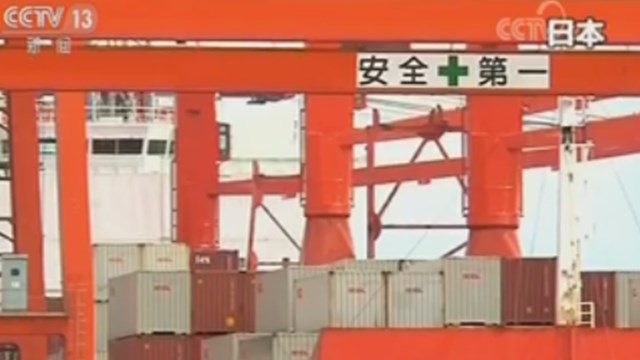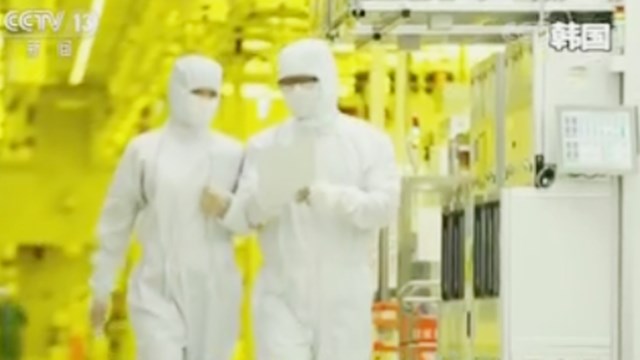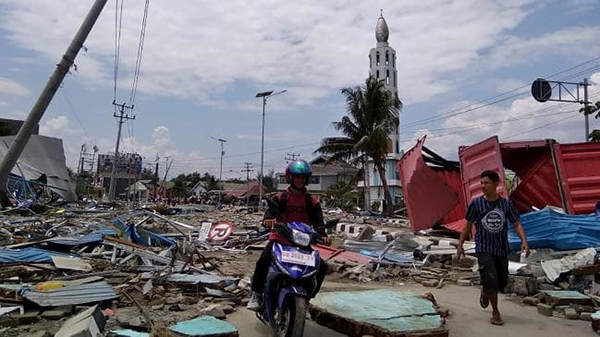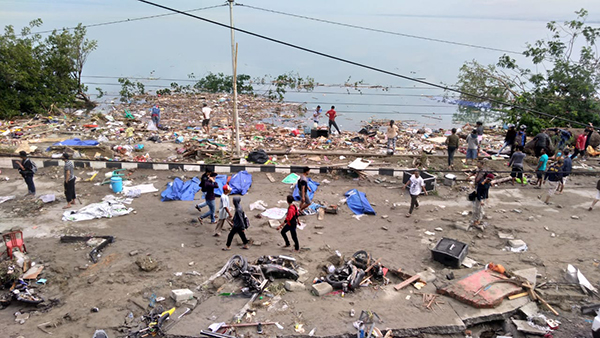The Times Value of the Great Anti-epidemic Spirit
Author: Professor Huang Jianjun, School of Marxism, Beijing Normal University; Zhao Qianqian, Ph.D. candidate of Marxism College of Beijing Normal University
On September 8, 2020, General Secretary of the Supreme Leader pointed out at the national commendation meeting for fighting against the COVID-19 epidemic that the people of China and the Chinese nation, with their dauntless spirit of daring to struggle and win, have forged a great anti-epidemic spirit of putting life first, uniting the whole country, giving up one’s life and forgetting one’s death, respecting science and sharing a common destiny. This exposition fully affirmed the great strategic achievements made in the fight against the epidemic, and also vividly summarized the connotation and essence of the great anti-epidemic spirit. The great anti-epidemic spirit is the precious spiritual wealth of the party and the people, and it will certainly boost the great cause of national rejuvenation to move forward step by step.
1. The great anti-epidemic spirit embodies the unity of party spirit and people’s nature, and inspires the Communist Party of China (CPC) to lead the people of the whole country to a better life.
The Communist Party of China (CPC)’s party spirit and people’s nature have always been consistent and unified. In the arduous fight against the epidemic, the Communist Party of China (CPC) has given full play to its leading role as a mainstay, grasped the overall situation as a whole, made scientific and precise policies, blocked the transmission route of the virus comprehensively and quickly, and spared no effort to protect people’s life safety and health. Communist party people keep in mind their initial intention and mission, set up a bright red party flag in the front line of fighting the epidemic, and rushed to Wuhan at the critical moment. More than 4.6 million grass-roots party organizations have built solid battle fortresses, and tens of millions of party member have played an exemplary role in normalizing epidemic prevention and control, thus creating a great wall of steel to ensure people’s life safety and production and living order. At the same time, the great anti-epidemic spirit shows the value pursuit of communist party people. It is the people of the Communist Party of China (CPC) who insist on putting people first, are deeply concerned about the safety and warmth of the 1.4 billion people in China, and always put people’s life interests first in order to save people’s lives at all costs. That is why so many lovely and respectable people’s heroes have emerged to overcome difficulties with the people.
Inspired by the great anti-epidemic spirit, and by truly grasping the party spirit and people’s nature, the Communist Party of China (CPC) will surely lead the people of the whole country to overcome numerous obstacles and dangers, strive for a better life for the people, and bring tangible benefits to the people.
Second, the great anti-epidemic spirit embodies the unity of practicality and scientificity, and promotes the cause of Socialism with Chinese characteristics to a great victory in the new era.
Practicality is the true feature and theoretical character of Marxism, and the viewpoint of practice is the core viewpoint of Marxist philosophy. All social life is practice in essence, and practice is the starting point, motivation and test standard of understanding. In the great practice of the anti-epidemic struggle, the battle for medical treatment, the battle for material support, the battle for tackling key technical problems and the battle for manpower organization started at the same time, and all fronts gathered together to fight the difficulties. Regardless of their abilities and professional differences, 1.4 billion people rallied to cite China’s strength, initially controlled the spread of the epidemic in just over a month, won the staged victory in Wuhan in fighting the epidemic in more than three months, and formed a normalized epidemic prevention and control deployment. At the same time, we should establish a scientific attitude of respecting science, seeking truth from facts and being pragmatic, increase investment in talents and scientific research, make scientific decision and command, treat cases scientifically, prevent and control diseases scientifically, and manage society scientifically, actively screen effective drugs and treatments, and successfully promote the integration of traditional Chinese and western medicine and vaccine development.
The great victory of Socialism with Chinese characteristics’s cause in the new era needs practical science and scientific practice, and needs long-term adherence to practice and development of science. Vigorously carrying forward the great anti-epidemic spirit in the new era is a full affirmation of the great practice of the anti-epidemic struggle, and it is also an expectation for the future practice of socialism.
Third, the great anti-epidemic spirit embodies the unity of regularity and innovation, and promotes the application of Marxist theory in basic issues of reform and development.
Only by being good at summing up laws can we be good at promoting innovation. From the starting point to the end point of the development of things, it contains the regularity of the development of things. At the same time, the starting point and the end point are relative, and the end point is a new starting point for development, and the development process achieves the unity of regularity and innovation. In the process of epidemic prevention and control, scientific laws run through the links of decision-making, command, medical research, resource allocation and social governance, and strategic achievements have been made in epidemic prevention and control, which fully reflects the methodological requirements of following the laws. In the face of unknown viruses and unknown diseases, the vast number of scientific and technical workers and medical personnel are at the forefront of the world in virus traceability and detection, case analysis and treatment, vaccine development and application, etc., innovatively breaking through the whole gene sequence of viruses, developing nucleic acid detection reagents, promoting personal health code recognition, and paying attention to innovation from law summary. Practice has fully proved that respecting laws, methods and ideas is appropriate, and it can be more innovative and promising. On the contrary, it will lead to subversive mistakes.
Fourth, the great anti-epidemic spirit embodies the unity of tradition and times, condenses patriotic feelings and enhances cultural self-confidence.
The great anti-epidemic spirit embodies the common spiritual pursuit of Chinese excellent traditional culture, revolutionary culture and advanced socialist culture, and embodies the strong spiritual strength of China people and the Chinese nation in difficult and critical times. The great anti-epidemic spirit is deeply rooted in people’s hearts, keeps pace with the times, and forms an internal unity with other spiritual contents under the test of the national anti-epidemic practice. Life is supreme, which embodies the love requirements of traditional moral feelings. People love each other and compatriots love each other, and people help each other. Political governance is based on benevolent governance. The ruling class must improve its inner virtue and self-cultivation and care about the sufferings of the people in order to win the hearts of the people. In the fight against the epidemic, the tradition of caring for life shows a new era content. 1.4 billion people responded to the epidemic with one heart and one mind, reported the epidemic in good faith, actively cooperated with isolation and upgraded community prevention and control, and every patient was fully treated. This is the best proof that Chinese people respect the humanistic spirit of life! The new era carries forward the great anti-epidemic spirit, unifies the traditional spirit with the spirit of the times, and embodies the unity of tradition and the times.
5. The great anti-epidemic spirit embodies the unity of nationality and cosmopolitanism, casts the national spirit and promotes the building of a community of human destiny.
The great anti-epidemic spirit is born in the great practice of the whole people to fight against the epidemic. It is a wonderful portrayal of the national spirit in the new era and a microcosm of the times. It shows the world the spirit of China, China’s strength and China’s responsibility, helps to recast and boost the national spirit, and inspires all Chinese people to overcome difficulties and obstacles, dare to struggle and dare to win. At the same time, in the world epidemic crisis, China fully demonstrated the spirit of international humanitarian relief, announced the epidemic information to the whole world at the first time, strengthened contact and communication with international organizations such as the United Nations and WHO, discussed countermeasures with leaders of other countries and regions, made public patient treatment plans, contributed scientific research breakthroughs and technical application results, and at the same time sent more medical experts, increased foreign medical material assistance and donated anti-epidemic funds, making great contributions to the global fight against the epidemic. The epidemic has brought great suffering to people all over the world, and it is the enemy of people’s health and life safety all over the world. We must firmly establish the concept of global governance and the concept of a community of human destiny, and push the whole world to join hands to gather strength for fighting and defeating the epidemic and build a security barrier for the stability, development and prosperity of human society.
In a word, the great anti-epidemic spirit is a valuable spiritual wealth that inspires the people of China to forge ahead and realize the great rejuvenation of the Chinese nation. Under the background of the new era, we should give full play to the epochal value of the great anti-epidemic spirit, encourage people to enhance their anti-epidemic confidence, guide the correct public opinion orientation, stimulate the positive energy of society, enhance the "four self-confidences", build a solid ideological foundation in Socialism with Chinese characteristics, and turn it into a great force to push forward China, so as to help realize the great cause of socialist modernization and national rejuvenation at an early date.








































